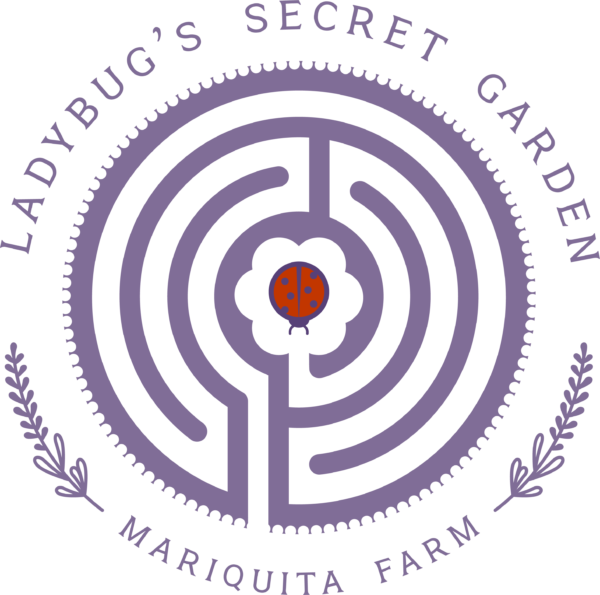Onions and Ramakrishna
 Hi everybody: It’s pouring rain, the fields are a swamp, the goats are starting to kid, one ewe gave triplet lambs today, and I’ve got to start thinking about spring planting. I’m distracted. I look forward to writing a Ladybug Letter every two weeks but I just didn’t have it in me today, so instead I dug back into the digital files and found a letter I wrote back in 2003. I hope you will enjoy reading it as much as I enjoyed writing it. -andy on 2-17-09
Hi everybody: It’s pouring rain, the fields are a swamp, the goats are starting to kid, one ewe gave triplet lambs today, and I’ve got to start thinking about spring planting. I’m distracted. I look forward to writing a Ladybug Letter every two weeks but I just didn’t have it in me today, so instead I dug back into the digital files and found a letter I wrote back in 2003. I hope you will enjoy reading it as much as I enjoyed writing it. -andy on 2-17-09
E Pluribus Onion
Ramakrishna compared the ego to an onion. Peel away an onion’s rings the way spiritual experiences strip at the ego until finally, after all the layers are gone, there is nothing; no central core with an egoistic structure, and no onion either, just a void with no barrier remaining to a union with Brahma. I wouldn’t know, but it’s not for lack of trying.
I peeled an onion, a saucer-shaped cipollini Bianco di Maggio to be exact. After eight layers I was left with a tiny pearly white, tear drop-shaped piece of lily bulb. I broke it open – layer number nine – and nothing remained but tears in my eyes from the oxidized sulfur compounds released from the onion’s tissue by my violence. Is this a deep and metaphoric experience, I wondered, or have I just wasted an onion?
So I gathered the curled, juicy onion pieces together and tossed them in a bowl of cool water so they couldn’t oxidize any more and turn bitter. As cheap and ubiquitous as they are onions are not easy to grow, at least not organically, so I didn’t want to waste one. I have shed more tears over growing onions than I ever have from eating them.
 To yield well an onion bed must be kept completely free of weeds. Allium roots are quite shallow and the plants can’t tolerate much competition. Without recourse to herbicides and soil fumigants organic onion culture can entail costly hand-weeding once the plants are too large for mechanical cultivation. Onions grow slowly, too, giving weeds lots of opportunities to sprout, and onions are hungry for fertilizer and thirsty for water. Onions demand full sun and perfect drainage. It is fair to say that onions are among the most self-centered and egoistic of the garden vegetables. Am I what I eat?
To yield well an onion bed must be kept completely free of weeds. Allium roots are quite shallow and the plants can’t tolerate much competition. Without recourse to herbicides and soil fumigants organic onion culture can entail costly hand-weeding once the plants are too large for mechanical cultivation. Onions grow slowly, too, giving weeds lots of opportunities to sprout, and onions are hungry for fertilizer and thirsty for water. Onions demand full sun and perfect drainage. It is fair to say that onions are among the most self-centered and egoistic of the garden vegetables. Am I what I eat?
There was sourdough bread on the table in front of me and a cube of butter. Feeling a void at my core I spread some butter on the bread. I poured the bowl of onions into a colander and shook it to drain them. “Would Ramakrishna approve?” I asked myself as I cobbled the buttered bread with puzzle pieces of raw onion and sprinkled them with a pinch of salt. Not everyone appreciates onions they way I do. Some religious traditions in Hinduism hold that the Brahmin, Kshatriya, and Vaishya castes, or the priestly, warrior, and professional classes, should avoid “hot” foods like onions that lead to lustful thoughts. Jains supposedly don’t eat onions either, and neither did the priests or royalty of ancient Egypt. The slaves who built the pyramids ate onions, though, raw and cooked, with great frequency. “We can’t all have been Cleopatra in a past life.” I decided, and bit into my sandwich. Some of us are eternal peasants.
The onion I was eating was sweet and mild and hardly bit me back, but its aroma reawakened Ramakrishna to my mind. Funny how the onion Ramakrishna saw as a perfect metaphor for the illusion of individuality and the nothingness of the void should have been seen by ancient Latins as a symbol of wholeness. Our words onion and union share a common Latin root in unio, meaning unity. The successive layers of an onion wrapped up in a single round bulb do suggest unity, especially when compared to their alliaceous cousins, the multi-cloved garlics. And somehow, even if you can never spy the life force at the heart of an onion or see it moving between the layers of an onion as you peel them away when you plant an onion bulb it will give birth to more genetically identical onions, thus wrapping the past, the present, and the future of vegetal individuality into one silky tear-jerking ball.
 Maybe it’s just the onion causing my mouth to water but I say onions are like the spicy, girly, back-up singers whose role on stage is to sway back and forth cooing sweet harmonies that allow some otherwise hunky but mediocre lead singer to sound good. What cuisine hasn’t been sweetened and enhanced by onions? Where would we be if onions didn’t add zest to American potato salad, or sugar to Pakistani dal, or bind together Chinese dumplings? If ancient Egyptian priests, Jains, Brahmins, warriors and Vaisyas can’t share in my onion harvest that just leaves more for the rest of us.
Maybe it’s just the onion causing my mouth to water but I say onions are like the spicy, girly, back-up singers whose role on stage is to sway back and forth cooing sweet harmonies that allow some otherwise hunky but mediocre lead singer to sound good. What cuisine hasn’t been sweetened and enhanced by onions? Where would we be if onions didn’t add zest to American potato salad, or sugar to Pakistani dal, or bind together Chinese dumplings? If ancient Egyptian priests, Jains, Brahmins, warriors and Vaisyas can’t share in my onion harvest that just leaves more for the rest of us.
I swallow the last bite of my onion sandwich and feel full for a moment; full of onion, full of thoughts about the onion-eating pyramid builders that came before us. Peeling onions and looking for your ego can get anybody feeling hollow and teary-eyed, but gather up those aromatic scraps into a meal you can share with friends and you can transform the moment; people will be talking, glasses will be clinking, and spicy lilies will be shaking their hips and harmonizing in the background.
What did those ancient Latins used to say? E Pluribus Onion?
copyright 2009 Andy Griffin
—–
Onion Recipes, including Chinese Dumplings & Pakistani Dal: recipes Julia gathered in travels
pre-kids.
Baby Goat Photos we took today
A few Mystery Veggie Boxes at Incanto in San Francisco available for this Thursday, 2-19-09. Read More….
0 thoughts on “Onions and Ramakrishna”
Leave a Reply
You must be logged in to post a comment.



I have just discovered your site, having looked you up after reading about you in the May Bon Appetit. Your writing is lovely, your topics are interesting, and your farm sounds delightful. I’m glad to have found you.